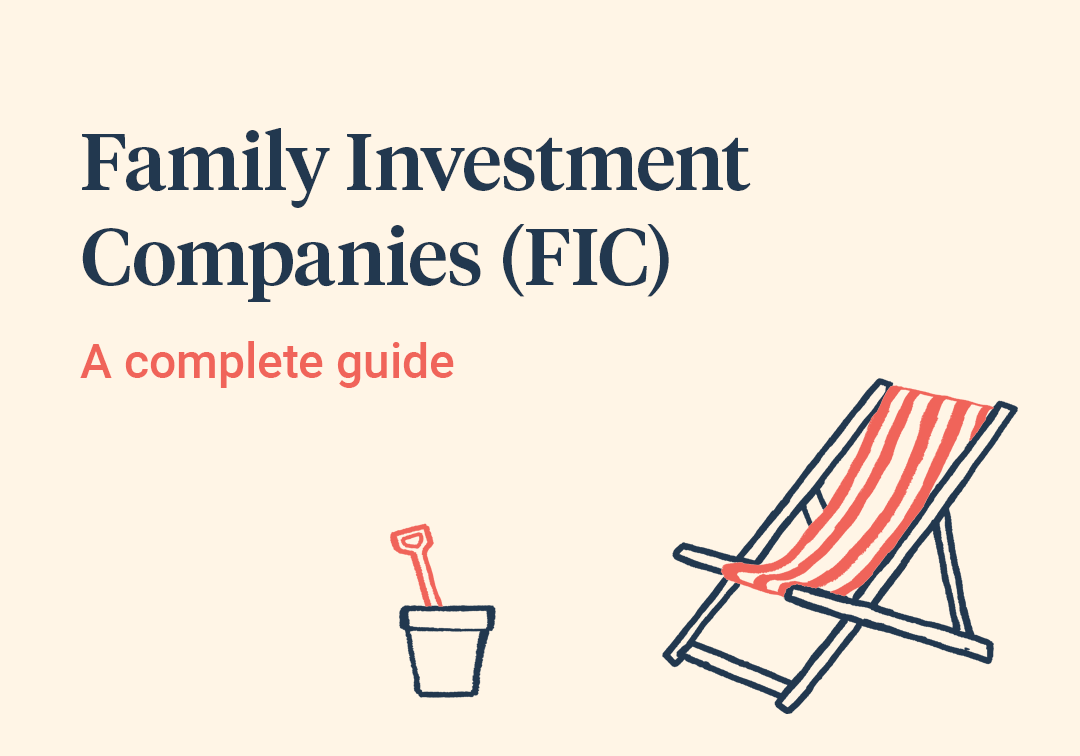Most of us are experts at putting off our admin tasks, but this is 2025. We are more organised, we are raring to go, and we want to be ahead of the curve! So, how can you apply this go-getting attitude to your financial planning?
See below a handy checklist to run through and tick off to ensure your finances and your future financial planning goals are on track. Let’s start the year as you mean to go on!
(Some links have been provided where you can read further information or discussion pieces relating to each topic. Note these are not the views of Saltus, rather information on the relevant issues that might be useful to gain a better understanding of the subject matter.)
1. Contribute to your ISA
Its easy to forget to make use of your ISA allowance which today remains at £20,000 per person per tax year .[1] As well as pensions and other investment wrappers, an ISA can be a useful tool in your financial planning armoury, allowing you to withdraw a regular income as well as ad-hoc lump sums tax-free. If like the Saltus ISA it is a ‘flexible’ ISA, this will also allow you to withdraw and replace up to the full amount withdrawn from the ISA in the same tax-year (without it counting towards the annual contribution limit). Nb. to be able to take advantage of this rule the funds withdrawn from the flexible ISA must go back into the same ISA. You can read more about this here What is a flexible ISA and how does it work? | Unbiased.
How much do you need to retire and more…

How much income do you need to be comfortable, how much do you need invested and how to pay less tax...
2. Set up or review your Will(s)
Ensuring you have a valid Will in place allows you to exercise control over what will happen to your estate when you pass away. This is hugely important as it allows your beneficiaries to know exactly what your wishes are and can help to avoid any disputes over how your assets are distributed. If you were to die without a Will or ‘intestate’ (without a testament), your estate would be subject to the rules of intestacy, which can make matters complicated.[2] Learn more here Sorting out the estate when there isn’t a will | MoneyHelper.
3. Set up your Lasting Powers of Attorney
If you were to become ill or have an accident and lose capacity, an attorney would be able to step in and manage your affairs on your behalf, provided you have registered your powers of attorney with the Office of the Public Guardian.[3] Problems with access to finances can often arise when a family’s assets, cash or investments are registered in only one person’s name. If no powers of attorney are in place, an approach would have to be made to the Court of Protection. This can be a slow process and cause undue stress to the family, particularly if finances are urgently needed. Worried? You can find out more about it here Lasting power of attorney – Mind.
4. Review your insurance covers
Life insurance, critical illness cover, Income protection, and family income benefit, it sounds like a lot, but it is hugely important. We all know someone that has suffered from a serious illness. It can happen to anyone. What would happen if you fell ill and couldn’t work for a year or two? How would you pay the mortgage? Do you have enough savings to ‘self-insure’? How would you replace these savings? Would you have to sell your house? Would a partner have to work full time instead of part time and not be there for the children? Or would allocating £100 – £200 per month on insurance covers (as a possible example) give you the peace of mind that should the worst happen, your family could weather the storm.
Putting up a forcefield around your family finances with insurance covers should, in most cases, be the highest on your list of financial planning priorities. Consider the following order of priority: ‘PIPSI’ – Protection, income protection, pensions, savings, investments. Find out more about life insurance here Why Get Life Insurance? 60% Risk Losing Millions | Life Insurance Is Important – Saltus
5. Review old shares
Many people are the recipient of shares that have either been gifted to them or inherited. There may be a sentimental value to holding on to individual shares. However, if the main aim is to retain the value in the shares, it may be worth taking a closer look at how they have performed. Putting individually held shares into context in the world of investments, they are a 10/10 on the risk scale. If a CEO resigns, the share price may go up or down, if a scandal hits an individual company, share prices can plummet; ergo, the volatility can be high.
Diversification of risk and assets has long been viewed as a good way to mitigate against such volatility, and holding a basket of funds in a diverse investment portfolio can help. There may also be tax advantages to be had from gradually moving investments out of a taxable environment into something more tax efficient, such as an ISA for example. Speak to your adviser to organise a review. You can learn more about investing in stocks here: Worried you may own too much of one stock? | J.P. Morgan Private Bank U.S.
Do you want to improve your tax position?
The more tax you pay, the harder your investments must work to grow your wealth. Our advisers can provide practical advice to help reduce your tax bill. Get in touch to discuss how we can help you.

6. Nominate a beneficiary on your pension
Make sure that you have registered an ‘expression of wishes’ to nominate any beneficiaries for any pensions you have, whether ‘defined contribution’ or ‘defined benefit’ in nature.[4] This important document will let the trustees or administrators of your pension scheme know who you would like the benefits of your pension to go to should you pass away. Check out more info here Why you should add a beneficiary to your pension – Aviva
7. Explore topping up your pension
Speak with your financial adviser before the end of the tax year to explore if you could or should make any additional pension contributions. Do this in well in advance of 6th April if you can, as this will allow enough time for any financial planning reports to be written, signed and for funds to settle. This can be especially important for those that run their own Ltd company or for those looking to potentially take advantage of tax relief. You may have found that you have had ‘a good year’ and that you have sufficient funds to make a lump sum top-up. You can find out more about the benefits of topping up your pension here 4 strategies for tax-efficient investing in retirement | Saltus
8. For number 8 let’s remember the 8th wonder of the world according to Albert Einstein – Compound Interest
It could be a good time to consider increasing your monthly pension contributions. As mentioned earlier, adding big lump sums to your pension is never usually a bad thing, but you can’t always afford to do this. Another, often overlooked, method is incrementally increasing your pension contributions every year. By doing so, you can take greater advantage of compounding, where growth builds on growth, helping your pension pot grow significantly over the long term.
Consider this, would you prefer to receive £1m today, or receive 1p today which will double in value every day for 30 days?
What did you go for? Yes, this is a bit of an extreme example, but it’s just to highlight that many of us get caught up in the big numbers as we often want to see results now rather than years down the line. Receiving £1m today would be great, but in the scenario above if you had waited 30 days you would have received £5,368,708.
I’m not suggesting that by slowly increasing your pension contributions the value of your pot will double in value every day! But you see the point, compound interest can provide growth on growth, so it’s worth speaking with your financial adviser to review your contributions. Learn more about this here What Is Compound Interest? | money.co.uk
9. Put in place an easy access emergency fund
Again, this is an often overlooked area of financial planning. Many people that have insurances, pensions and investments in place often omit retaining a suitable cash reserve on deposit that they could access at short notice, should the need arise. An emergency fund is often for mundane reasons such as replacing a boiler or fixing a roof. However, it happens more often than you would think, and having to dip into your investments is not ideal and often not what the investment or pension was set up for. Access to such investments can take time and any funds withdrawn may miss out on any market growth in the stock markets.
What is a suitable amount to hold in cash as an emergency fund? Well, that depends on your regular income and expenditure, as well as your overall finances. Speak to your adviser to evaluate what an adequate amount to hold back should be. You can read more about emergency funds here How much to save for an emergency | MoneyHelper
10. Review your financial objectives
This could be an annual objective for you or for your family, or it may be a bigger, more over-arching objective such as retirement. Have any of the goals you’ve already set changed? Would you like to retire earlier? Would you like to be able to spend more? Have proposed changes to legislation meant that you may in the future have an inheritance tax issue?
For any of the above, organise a chat with your financial adviser. Get ahead of the issue, and I’m sure you’ll feel better for doing so.
Do you want to improve your tax position?
The more tax you pay, the harder your investments must work to grow your wealth. Our advisers can provide practical advice to help reduce your tax bill. Get in touch to discuss how we can help you.

Article sources
Editorial policy
All authors have considerable industry expertise and specific knowledge on any given topic. All pieces are reviewed by an additional qualified financial specialist to ensure objectivity and accuracy to the best of our ability. All reviewer’s qualifications are from leading industry bodies. Where possible we use primary sources to support our work. These can include white papers, government sources and data, original reports and interviews or articles from other industry experts. We also reference research from other reputable financial planning and investment management firms where appropriate.
Saltus Financial Planning Ltd is authorised and regulated by the Financial Conduct Authority. Information is correct to the best of our understanding as at the date of publication. Nothing within this content is intended as, or can be relied upon, as financial advice. Capital is at risk. You may get back less than you invested. Tax rules may change and the value of tax reliefs depends on your individual circumstances.
About Saltus?
Find out more about our award-winning wealth management services…
Winner
Best Wealth Manager
Winner
Investment Performance: Cautious Portfolios
Winner
Top 100 Fund Selectors 2024
Winner
Best Places to Work 2024
£8bn+
assets under advice
20
years working with clients
350+
employees
97%
client retention rate



